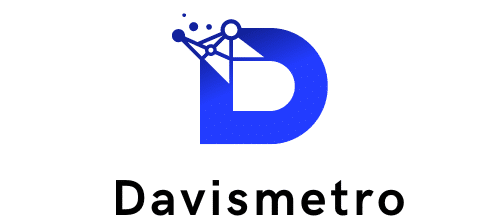In an evolving digital landscape, personalization has emerged as a game-changer for businesses looking to stand out from the competition. As a pivotal element in B2B marketing, personalization transcends the one-size-fits-all approach, offering a tailored experience that resonates with each customer’s unique needs and preferences. The dynamism of today’s market dictates a shift from generic content to personalization, where customer engagement and satisfaction are paramount. B2B companies are recognizing the significance of personalization in their marketing strategies, as it fosters deeper connections with their audience, driving conversions and loyalty.
Understanding the Value of Personalization
The Shift Towards Customer-Centric Marketing
In the realm of B2B marketing, personalization has taken a front seat as businesses acknowledge its power in fostering meaningful connections. Personalization is no longer a luxury but a necessity, as customers demand experiences that feel exclusively crafted for them. The shift from traditional marketing to a customer-centric approach underscores the need to understand your audience at a granular level and to deliver content that addresses their specific pain points and aspirations.
Lire également : The growing importance of cybersecurity in healthcare businesses
Data-Driven Insights for Hyper-Personalization
The fuel that powers personalization in marketing is data. Businesses are harnessing the power of data-driven insights to achieve hyper-personalization. By analyzing customer data, marketers tailor experiences that resonate on a personal level, making each interaction feel designed for the individual. This data can originate from various sources, including website interactions, social media engagement, and email responses, providing a multidimensional view of the customer.
Crafting a Personalized Content Strategy
Content Marketing That Speaks to the Individual
At the heart of personalization lies content marketing, a strategy that enables businesses to engage prospects with stories and information that align with their specific interests and challenges. By creating personalized content, you not only enhance your relevance to your target audience but also improve your chances of converting prospects into leads.
A voir aussi : The future of mobility as a service (maas) in urban planning
The Role of Segmentation and Targeting
To deliver personalized content effectively, segmentation and targeting are crucial. They allow marketers to divide their audience into smaller groups based on shared characteristics or behaviors. This enables the delivery of more relevant and impactful messages, increasing the likelihood of engaging your audience in a meaningful way.
Leveraging Personalization in Email Marketing
Elevating Engagement with Personalized Emails
Email marketing remains a powerful tool in a marketer’s arsenal, and incorporating personalization takes its effectiveness to the next level. Personalized emails capture the recipient’s attention, speak to their specific needs, and guide them towards the next step in the buyer’s journey. By using personalization in your email campaigns, you can significantly enhance engagement and foster a stronger relationship with your customers.
Techniques for Personalized Email Campaigns
Crafting a successful personalized email campaign involves several techniques, such as segmenting your email list, using dynamic content that adapts to the recipient’s profile, and personalizing subject lines to increase open rates. These practices ensure that each email feels like it was sent from a trusted friend rather than a faceless corporation.
Personalization at Scale in B2B Marketing
Strategies for Scaling Personalization
The challenge for many businesses is scaling personalization while maintaining its authenticity. To personalize marketing communication effectively and efficiently, you need to employ strategies such as marketing automation tools and AI-driven technologies that can handle large volumes of data without losing the personal touch.
Balancing Automation and Human Insight
While technology plays a vital role in scaling personalization, it’s equally important to balance automation with human insight. The nuances of human emotion and understanding cannot be entirely replicated by machines, so ensuring that your personalization efforts are overseen by a thoughtful human touch is essential for maintaining authenticity and connection.
The Impact of Personalization on Sales and Marketing Alignment
Strengthening Collaboration for Better Results
Personalization has the power to bridge the gap between sales and marketing teams. By aligning around a shared understanding of the customer, both departments can work together more effectively to deliver personalized experiences that not only attract but also convert and retain customers.
Measuring Success with Conversion Rates and Customer Feedback
One clear indicator of successful personalization is an improvement in conversion rates. Additionally, customer feedback provides valuable insights into how well your personalized marketing efforts are resonating with your target audience. By closely monitoring these metrics, you can continually refine your strategies for even better results.
In today’s competitive B2B landscape, personalization is not just a trend; it’s a fundamental shift in how businesses approach marketing. As companies strive to cut through the noise and connect with their target accounts, personalization has become indispensable. The key to unlocking its full potential lies in understanding your customers deeply—grasping their pain points, preferences, and behaviors—and leveraging this knowledge to provide them with experiences that feel tailor-made.
With the right strategy, tools, and data, marketers can create personalized content that transforms prospects into loyal customers. By committing to personalization, your business can build stronger relationships, enhance customer loyalty, and achieve a significant edge in the marketplace. As we move into a future where personalization is expected rather than optional, the businesses that succeed will be those who master the art of speaking directly to their customer’s hearts and minds.






